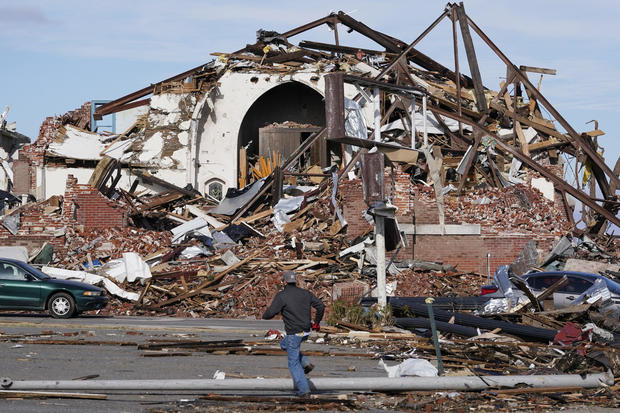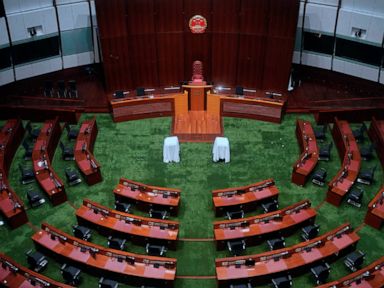
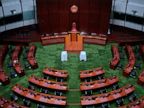

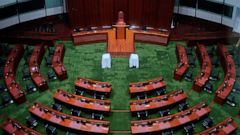
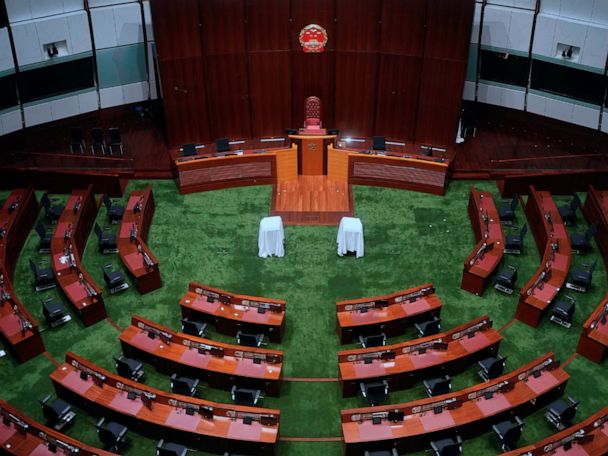
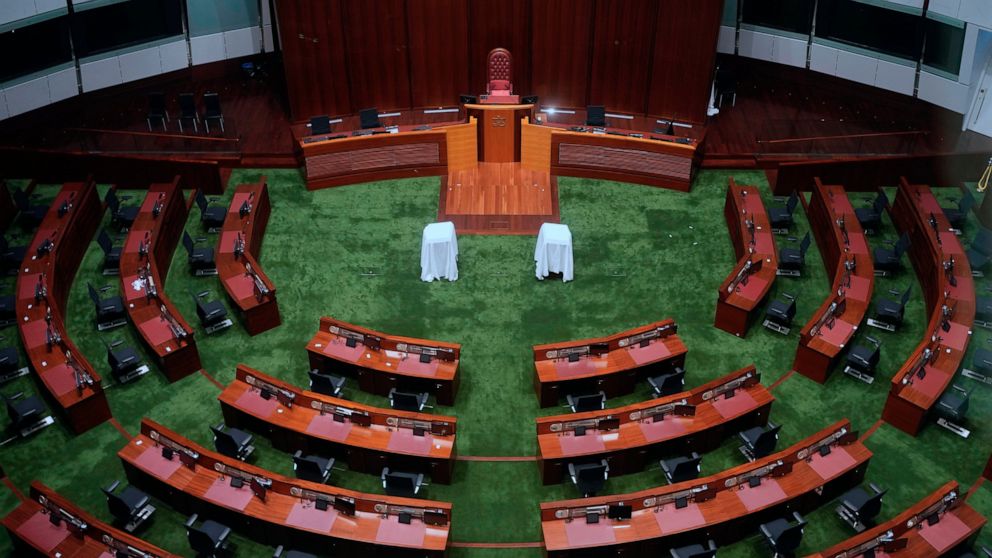

Hong Kong is voting in the first election since Beijing amended the laws to reduce the number of directly elected lawmakers and vet candidates to ensure that only those loyal to China can run
HONG KONG — Hong Kong was voting Sunday in the first election since Beijing amended the laws to reduce the number of directly elected lawmakers and vet candidates to ensure that only those loyal to China can run.
The semi-autonomous territory was rocked by pro-democracy protests in 2014 and 2019, but they were crushed by security forces, followed by the imposition of a sweeping national security law that silenced most of the city’s opposition activists and led others to flee abroad.
Constitutional and Mainland Affairs Minister Erick Tsang warned Saturday that foreign forces may be attempting to undermine the elections after overseas activists urged a boycott of the vote. Under the new election laws, incitement to boycott and casting invalid votes can lead up to three years in jail and a 200,000 Hong Kong dollar ($26,500) fine.
Low turnout was widely expected, with the latest survey by the Hong Kong Public Opinion Research Institute finding that 39% of respondents indicated that they are unlikely to vote.
Some 4.4 million residents are eligible to vote. The elections were originally scheduled to take place in September last year, but were postponed with authorities citing public health risks due to the pandemic. The decision was opposed by the pro-democracy camp, which accused the government of using the outbreak to delay the vote.
Hong Kong’s largest opposition party, the Democratic Party, fielded no candidates.
Heavy police presence surrounded polling stations Sunday. Police chief Raymond Siu said about 10,000 officers would be deployed to make sure the election proceeds smoothly.
To encourage the vote, authorities offered free public transport in an unprecedented move, and sent out reminder messages a day before the polls.
“Casting your vote for HK — our Home! LegCo Election is important to you and HK’s future!” the message read, referring to the Legislative Council.
The rubber-stamp Chinese parliament in March passed a resolution to alter Hong Kong’s election law that many saw as effectively ending the “one country, two systems” framework under which Hong Kong was to retain its separate legal, political and financial institutions for 50 years following the handover from Britain in 1997.
The assembly voted to give a pro-Beijing committee power to appoint more of Hong Kong’s lawmakers, reducing the proportion of those directly elected, and ensure that only those truly loyal to Beijing are allowed to run for office.
The move expanded the size of the chamber from 70 to 90 seats, with members of the Election Committee, a strongly pro-Beijing body responsible for electing the chief executive, making up 40 of those. Another 30 seats are elected by business groupings known as “functional constituencies.” The number of directly elected representatives was reduced from 35 to 20. Five seats elected from among district councilors were abolished altogether.

